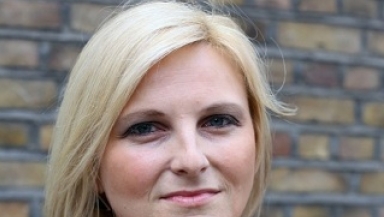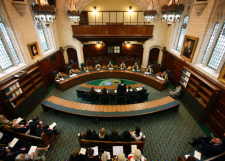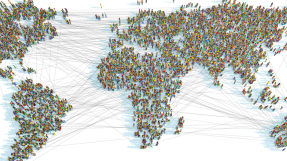
A Christian health worker is taking legal action against her employer after being investigated for offering to pray for a Muslim colleague.
Victoria Wasteney, 37, offered to pray for a junior colleague when she was upset, and gave her a book about a Muslim woman who had an encounter with God.
The colleague, Enya Nawaz, later filed a report which said she had tried to convert her, an allegation which Wasteney says was a "complete surprise".
She was suspended for nine months while the matter was investigated and subsequently given a written warning for "bullying and harassment".
Wasteney has since returned to work but is taking the trust to an employment tribunal today in a bid to raise awareness about the difficulty of what she saw as ordinary interactions between colleagues.
"I'm not particularly fighting for myself," Wasteney told Christian Today. "This needs to be something that's talked about.
"We need to look at some of our policies in place, so that staff are clear about where they stand. Otherwise we're going to have lots of people in this situation, not just Christians."
She doesn't see this as a problem just within the NHS, but a widespread issue, and one that people are afraid to talk about.
Wasteney is a senior occupational health therapist at the John Howard Centre, a specialist mental health facility in east London, but is currently working at the trust's head office while the tribunal takes place.
In a statement released this weekend she described the time she offered to pray for Nawaz after she had come to her in some distress about a health problem.
"I said to her that she had strong faith and she should draw on that faith," Wasteney explained. "'I said 'Pray!' She told me she could not pray, so I replied 'Maybe I can pray for you?' And she said 'OK'.
"I asked if I could put my hand on her knee, and she said yes. I don't know if I said 'Lord' or 'God' but I said what I thought was the most neutral. Then I said 'I trust that You will bring peace and You will bring healing'."
She also gave Nawaz a copy of the book 'I Dared to Call him Father' about a Muslim woman who eventually converts to Christianity.
Wasteney had not read the book, but it had been recommended by a friend. "I understood it was a book about a spiritual journey – a woman's encounter with God," she told Christian Today.
"The whole basis of our conversations around faith started with her telling me that she'd had an encounter with God, that she felt she had been brought to London for a particular reason."
She said it wasn't her intention to suggest that 'Christianity is the only way'.
The subsequent complaint came as a shock, since she had believed their conversations were part of the everyday interaction between friends. "It came as a complete surprise – a complete flip of my experience of the situation," Wasteney said.
"We were both interested in what one another were involved in – it was part of the normal process of building a relationship with someone, to talk about primarily things we were interested in outside of work."
Speaking of the wider issue, Wasteney said: "I believe in equality and I believe in diversity and open discourse, and if... we can't talk with people who might have different views, I think that's very limiting and I'm not sure that is a reflection of the society that we pride ourselves [on being]."
One area of common ground between the two colleagues was a shared interest in campaigning against human trafficking, which led Wasteney to invite Nawaz to an event on the subject being held at her church. The invitation to church was another aspect addressed by the investigation.
Wasteney said she knows that other colleagues were asked during the investigation whether she had invited them to church as well. She said she now fears being seen at work as a "religious nutcase".
"It looks like I've been suspended for inviting people for church, which basically makes me look kind of crazy," Wasteney said.
The publicity the case has already received has made things difficult both with colleagues and clients, so why take it further?
"I very much felt like my reputation had been jeopardised and I had a choice to make therefore. Do I feel strongly enough about this issue? Do I think it's an issue that's beyond myself?
"I don't see other people coming forward. People seem to be very scared about sharing these things, and therefore I don't think we're really tackling the issue," Wasteney said.
Despite the trust making an effort to reintegrate her at work, she said things still weren't clear about what is allowed and what's not.
When Wasteney asked whether it was ok to attend the lunchtime prayer meeting, she was told "What you do in your lunchtime is your own business."
She responded: "I prayed with this girl in my lunchtime and I nearly lost my job over it."
Andrea Williams, chief executive of the Christian Legal Centre, which has supported Wasteney, said in a statement: "Victoria's case highlights the risks of the current 'equality and diversity' framework. Rather than bringing people together and creating more cohesive workplaces where people can be honest about who they are and build meaningful relationships, 'political correctness' means that many workplaces are becoming fragmented, superficial and suspicious. People are being forced to hide their identity and the things that matter most to them."















